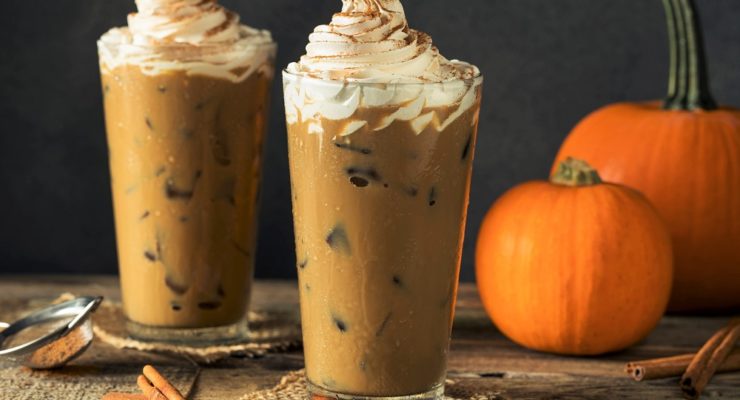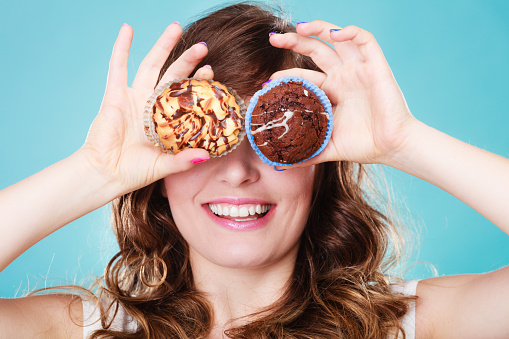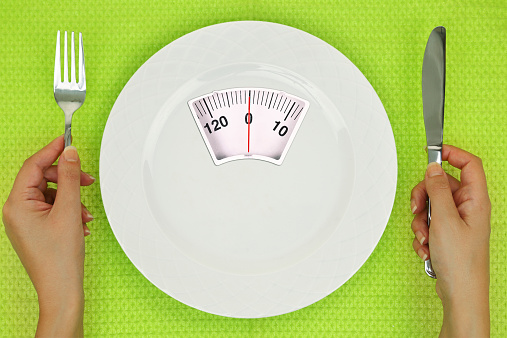7 Reasons You’re Ravenously Hungry Today
Article posted in: Diet & Nutrition
You ate your usual three meals and a handful of snacks, which usually keeps you purring along perfectly all day. Until today. Today, you want to eat everything you see and go back for seconds. What happened?
It may have been one of these seven things that science says can make you feel hungry:
1. You’re tired.
Numerous studies have found that losing sleep makes you want to eat more, and it may be for different reasons in men and women.
One study by Columbia University researcher Marie-Pierre St. Onge, PhD, and her colleagues found that sleep-deprived men tended to produce more of the appetite-boosting hormone, ghrelin, while women whose sleep time was cut short produces less of an appetite-suppressing chemical known as GLP-1.
But neither sex reaches for healthy food after a bad night’s sleep. In fact, when you haven’t gotten enough sleep, you’re looking for that quick blast of energy provided by sugary foods. The Rx: Get enough sleep.
Getting 6.5 or more than 8.5 hours of sleep a night has been linked to excess weight, says a study, published in the American Journal of Health Promotion, which also recommends a consistent bed and wake time to stay slim.
2. You’re dehydrated.
When you’re thirsty, you can feel hungry. Why? Because as much as 30 percent of the fluid we get every day to replenish our bodies, which comprises two-thirds of our body weight, comes from food.
That old advice about drinking lots of water to help you lose weight? Take it. The average person needs anywhere from an estimated 11 to 15 cups (eight ounces) of fluid a day from all sources, depending on weight, age and activity level.
That doesn’t mean you have to drink that many glasses of water. But make sure you drink enough to keep yourself hydrated.
3. You ate too many processed carbs.
Eating easy-to-digest—and delicious—refined carbs (think sugary treats and white grains) can make your blood sugar soar. Your body doesn’t like that, so it nudges the pancreas to release insulin to help round up the sugar and store it for energy. Once it’s stored, guess what? You’re hungry again—with a vengeance.
That’s the opinion of leading Harvard researcher and endocrinologist David Ludwig, MD, PhD, author of the book, Always Hungry?
You didn’t think that restaurants gave you a basket of rolls before your meal to kill your appetite, did you? If you’re craving carbs, stick to whole grains and other unprocessed carbohydrate foods like veggies with a little low-fat dip to keep that hungry loop from happening.
4. You had a drink or two.
Alcohol can loosen all your inhibitions, including the one that keeps you from eating all the appetizers at a party. A study, published in the journal Alcohol & Alcoholism, found that having just three drinks can reduce your body’s production of leptin, the hormone that tells you that you’ve had enough, by almost a third.
It can also reduce your body’s store of glycogen, a fuel source. That makes you want to eat carbs since that’s where glycogen comes from.
If you head straight for the salty stuff, you may be dehydrated. Alcohol can do that, too. Like the restaurant bread basket, the before-dinner drink can encourage you to eat more, not less, even if you’re imbibing loads of calories.
If you know you eat more when you drink, don’t drink, or minimize the effect by having spritzers—a little wine with some seltzer. You can also have a glass of water in between glasses of wine.
5. You’re stressed.
There’s even a name for this: Stress eating. Sometimes stress can make you lose your appetite, most often when it’s acute.
Think: A deer just ran out in front of your car or you get a call from your child’s school that he’s injured. When your stress response is suddenly called into action, your body produces adrenaline which makes eating the last thing you want to do.
Chronic stress is different. When stress goes on and on, your body produces cortisol, a hormone that can ramp up your appetite and desire to chow down on everything you see.
Studies have found that high cortisol levels translate into a desire for foods high in fat, sugar or both. There’s a reason that comfort foods are so comforting—they’re what our appetite and stress hormones are telling us we need.
But mac and cheese and a chocolate cupcake aren’t the only ways to relieve stress. Less fattening but better studied options include regular physical exercise, meditation and what science calls “social support”—the people you can reach out to when times get tough.
6. You’re inundated with pictures and scents of food.
If you’re old enough, you may remember a TV ad for a fast food chain that featured a video of sizzling burgers and asked, “Aren’t you hungry?” You probably were hungry, thanks to that ad.
A study at the University of Southern California found that seeing images of high-calorie foods makes the parts of the brain linked to appetite light up on high-tech brain scans. The study participants also admitted that looking at the images made them crave the food they were seeing.
TV commercials, recipes on Pinterest, even the smell of cinnamon rolls baking at the mall can reach into your brain and make you hungry. Yale researchers found that both children and adults exposed to food ads on TV significantly increased the amount of snacking they did afterwards.
You may not want to kill your TV. However, you might consider DVRing your favorite shows which will allow you to fast-forward through those tempting ads.
7. The weather is changing.
As winter approaches, we turn into squirrels preparing for the cold weather. A study involving 593 people from several health maintenance organizations in Massachusetts, published in the journal Nature, found that people ate an average of 86 more calories in the fall than in the spring, much of it in the form of fat.
But we may not be imitating squirrels so much as we’re taking advantage of some of the biggest eating opportunities of the year—Thanksgiving and Christmas. We’re also cutting back on physical activity as the cold weather drives us inside to our nice warm couches.
According to a study conducted by Cornell University, it has been revealed that people tend to reach their lowest weight of the year towards the end of summer, just before the commencement of festive eating extravaganzas.
So now is the time to set goals and plans to achieve them to help you sidestep the seasonal weight-gain minefield. Put exercise dates (with yourself or with friends) on your calendar. Make your goal to turn down anything but your absolute favorite holiday foods. Don’t skip meals so you can enjoy the big one. Skipping a meal can make you ravenously hungry so that big meal becomes a massive one.













